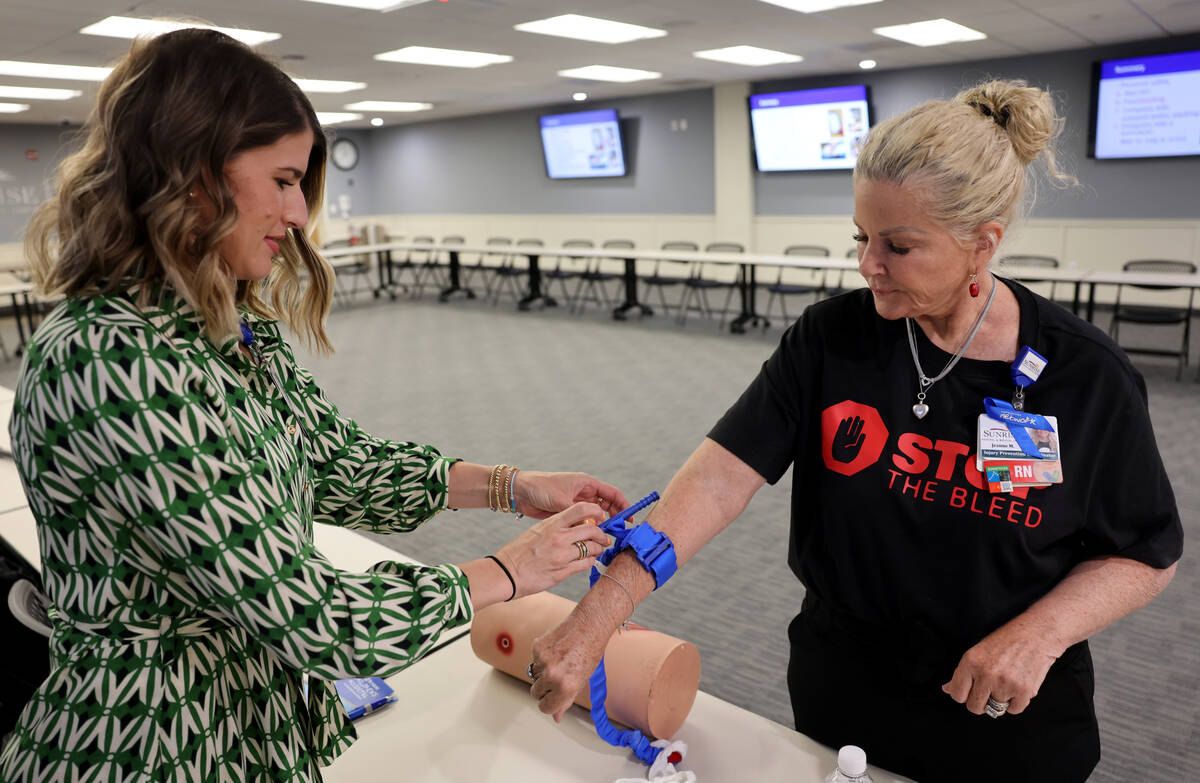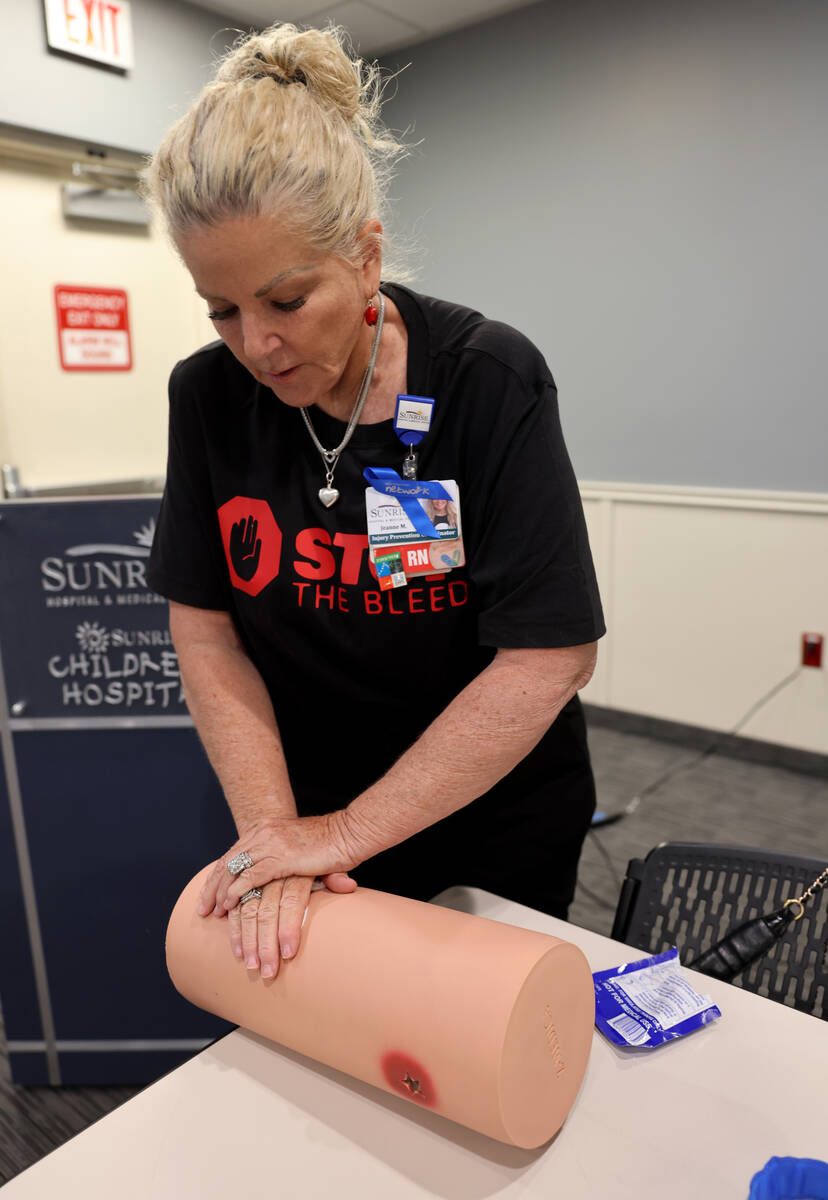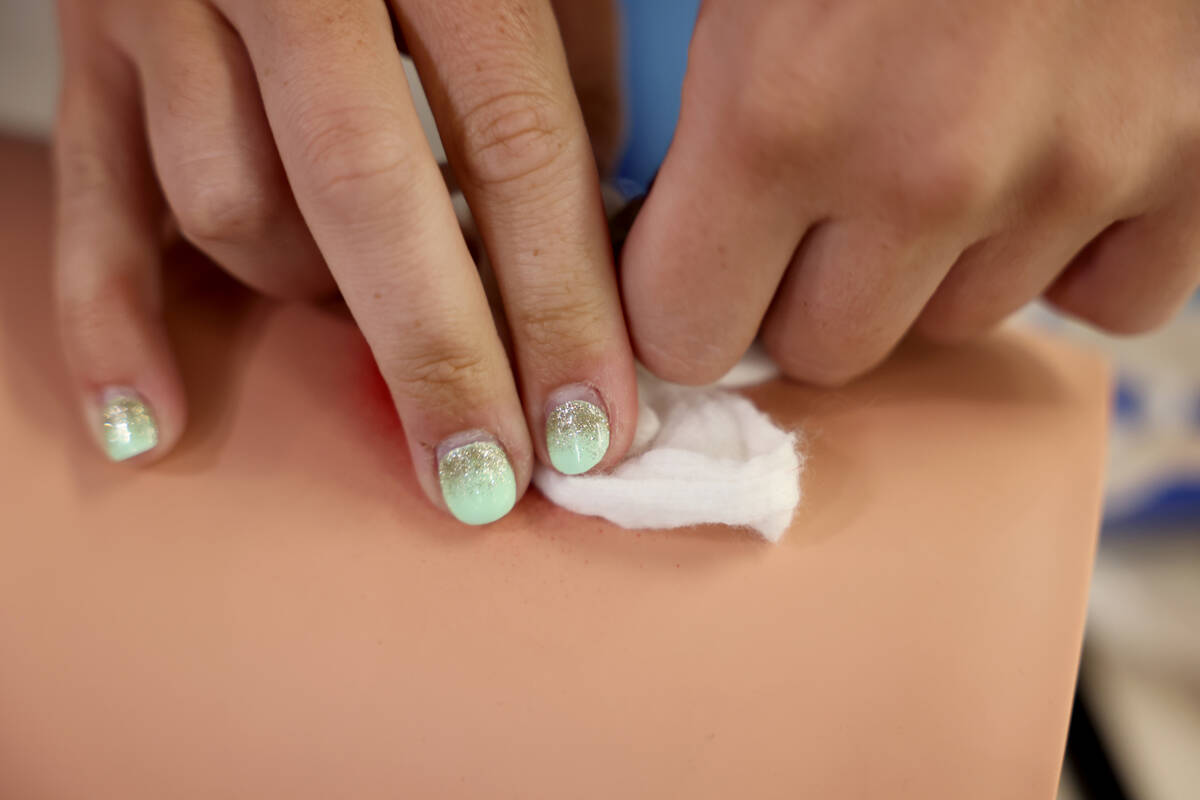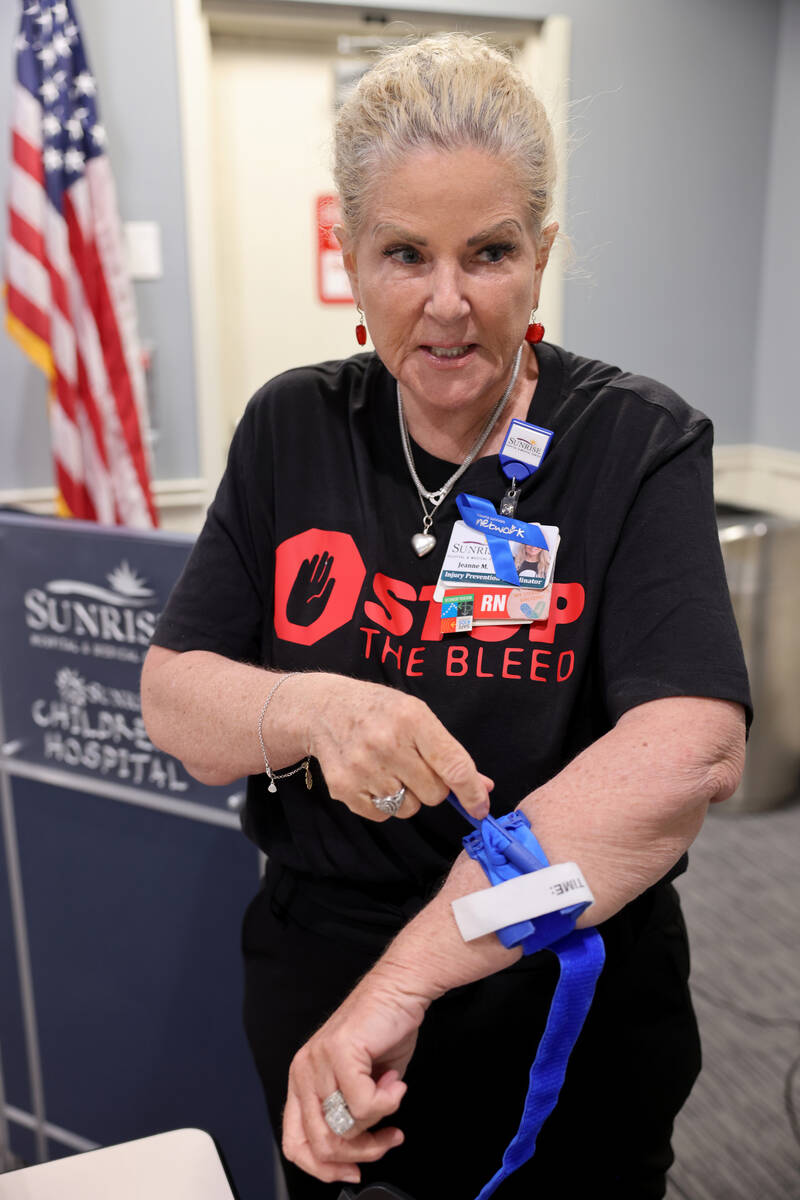‘Stop the bleed’: ER nurse shares tips to stop severe bleeding, save lives
Trauma experts say the most common cause of prehospital death is bleeding out, and a nurse at Sunrise Hospital and Medical Center has some tips for helping prevent it.
Nurse Jeanne Marsala, the injury prevention coordinator at Sunrise, teaches free, monthly classes on how to “Stop The Bleed.”
“It’s the No. 1 prehospital death is bleeding,” Marsala said. “They don’t even make it to the hospital unless someone knows what to do on the scene to save their life.”
Marsala’s class starts with the ABCs of trauma, alert 911, find the bleeding and compress the wound.
On Oct. 1, 2017, when hundreds were shot during the last night of the Route 91 Harvest festival, Sunrise Hospital treated 240 patients, taking on more gunshot victims at one time than any hospital in U.S. history, CEO Todd Sklamberg previously told the Review-Journal.
Marsala emphasized that many of those who were shot tried to help other injured concertgoers. She advised that bystanders should get themselves and the victim to safety before administering aid.
It’s often easier to find the source of the bleeding by ripping off clothing, especially for entry and exit wounds of gunshots and stab wounds, she said.
Once all sources of blood are located, Marsala advised covering openings with cloth, gauze or anything available to stop the bleeding. Fabric should be packed directly into deeper wounds, and the person aiding should lean their body weight against the victim to put pressure on the injury.
“We’re going to use whatever we have,” Marsala said. “Even if you don’t think it’s the cleanest, we can treat infection, we can’t treat death. So let’s get them to the hospital.”
That pressure on the wound should be applied until medical services arrive.
“You don’t want to take a peek at it,” Marsala said. “Keep that pressure on there.”
Similarly, if arms and legs are injured, a tight tourniquet can stop the extremity from continual bleeding. Tourniquets should always be applied above or below an elbow or knee, not on top of them.
Marsala advised everyone should keep scissors, gloves and gauze in their cars in case they need to jump into action.
Contact Sabrina Schnur at sschnur@reviewjournal.com or 702-383-0278. Follow @sabrina_schnur on Twitter.


























